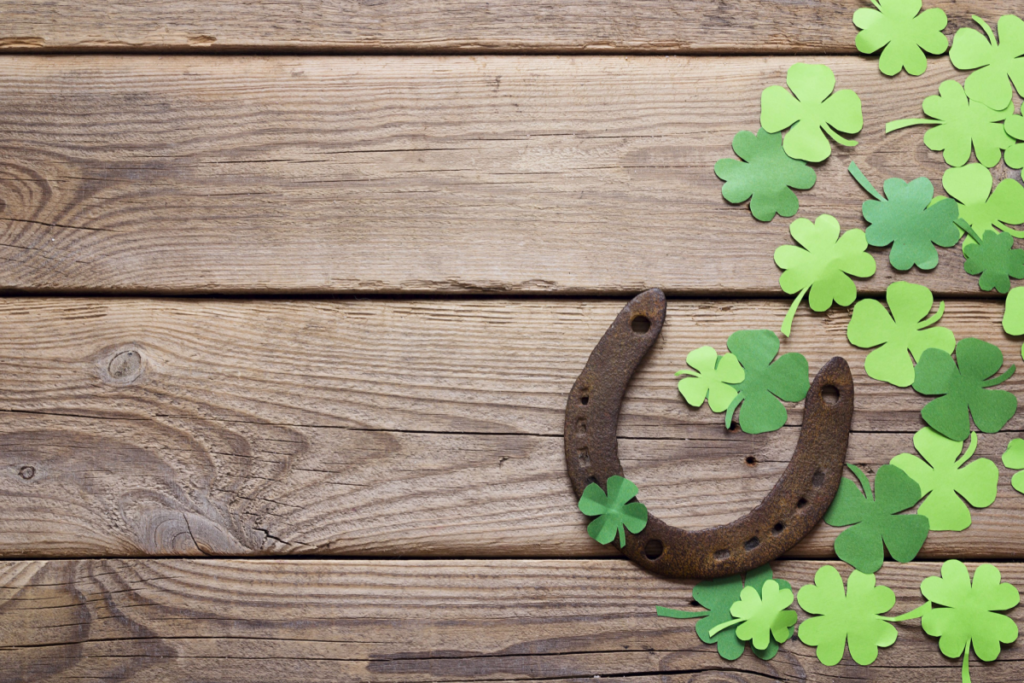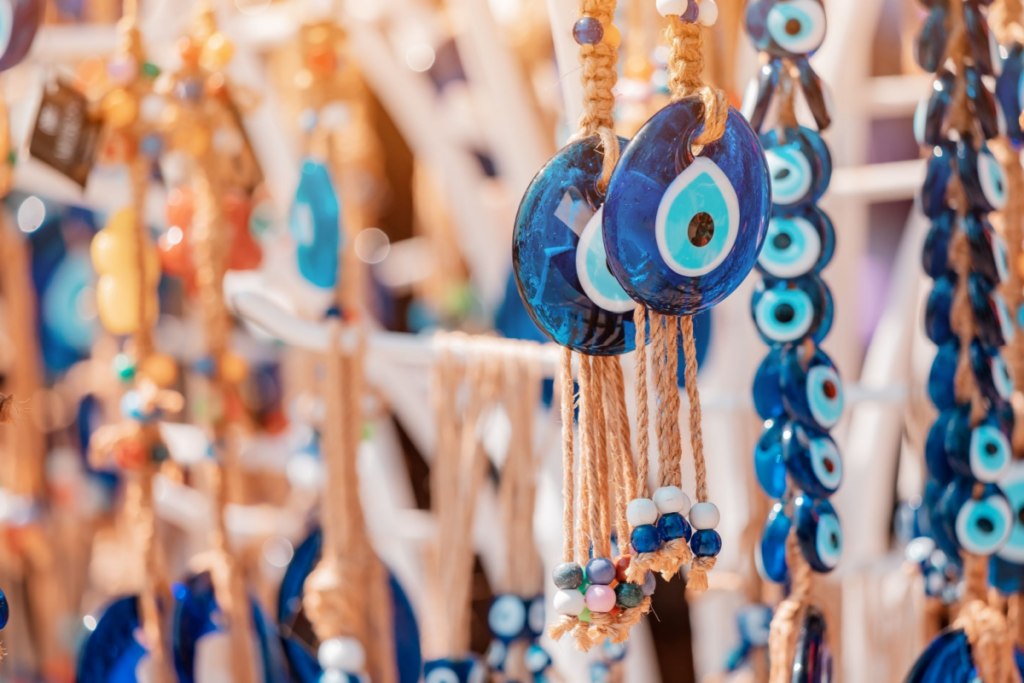Why Are We Superstitious?


Written and verified by the psychologist Laura Ruiz Mitjana
Do you cross your fingers for good luck? Are you afraid to walk under a ladder? Superstitions, although we may not believe in all of them, are everywhere. However, why are we superstitious?
The explanation could have its origin in the tendency of the human being to want to make sense of what, through reason or logic, they can’t understand. But what else lies behind these superstitions?
“The superstition in which we were brought up never loses its power over us, even after we understand it.”
-Gotthold Ephraim Lessing-
What does it mean to be superstitious?
Superstition is defined as ‘ a belief that has no rational basis. It consists of attributing a magical or supernatural character to certain events, or ‘in thinking that certain events provide good or bad luck’.
Damisch et al. (2010) conducted a study that was published in the journal, Psychological Science. They defined superstitions as irrational beliefs according to which it’s considered that an object, action, or circumstance, without an objective relationship with a vital situation of the person, has an influence on them.
Superstitions have a long history behind them and must be contextualized within each culture, tradition, and even religion of their origin. There are many superstitions. For example, a black cat crossing in front of you, breaking a mirror, walking under a ladder, or spilling salt on the table is said to bring bad luck. Similarly, there are ‘good’ superstitions, like crossing your fingers for good luck.

The reasons behind being superstitious
Superstition doesn’t have a single origin: personal, social, and cultural factors also intervene. Some cultures are more superstitious than others and some people are also more superstitious. Let’s find out what lies behind them.
Seeking an explanation for mysteries: the animist mind
The fact that, as humans, we’ve always tried to find a logic in what seemed to escape it could explain why we’re superstitious.
In addition, humans have animistic minds. This leads us to attribute to physical objects and events (inanimate entities) biological qualities such as life or psychological qualities such as consciousness. In fact, as a result of this animistic mind, many ancient religions thought that the objects and events of nature possessed their own souls and consciousnesses.
The rational mind is more costly
With the passage of history and the advancement of science, the scientific method arrived. This led us to be more rational when it came to explaining the reason for things. On the other hand, superstitions are more simple. They’re superficial arguments that allow us to feel that we control something of what surrounds us. Although this reading of reality is more simplistic, it gives us a sense of security.
Thus, by way of illustration, it’s easier to think that you’ve had a bad day because “you got out of bed on the wrong side” than to start analyzing all the details that would explain why you had a bad day and to understand why it happened.
Cognitive dissonance and superstition
On the other hand, cognitive dissonance could also have something to do with superstition or the so-called ‘belief in luck’. Think about how selective you are with your superstitions.
For example, if you walk under a ladder and then find a flat tire on your car, you think it’s clear that the superstition is right (cause-effect thinking). On the other hand, you forget the ladder if you later find all the traffic lights green on the way to the office. That’s because your mind ‘doesn’t care’. In fact, in this case, it understands that it’s absurd to imagine a possible relationship between the state of the traffic lights and a ladder. Nevertheless, in both cases, you’ve walked under a ladder, but your mind makes the decision whether to attribute this action with any effect.
Here, it’s the mechanism of cognitive dissonance that’s at work, since you tend to take as cause-effect relationships all those associations that you expect. In other words, you tend to confirm what you think. The same thing happens with superstitions.
The socio-cultural environment has an influence
Are men or women more superstitious? Does superstition depend on our origins? A study conducted by researchers from the National Autonomous University of Mexico analyzed the contribution of the sociodemographic variables of sex, age, and socio-educational level to the type of magical beliefs of a group of 360 people.
Through a magical beliefs questionnaire, the participants indicated their degree of agreement or disagreement with 41 statements, many of them related to superstition and divided into four categories:
- Extraordinary experiences.
- Superstition.
- Religion.
- Paranormal communication.
The results of the study supported the argument that magical beliefs, including superstitious beliefs, are a product of the sociocultural environment in which each person develops.
For instance, they found that the higher the level of education, the less inclined people were to adopt different magical beliefs. This skepticism can be strengthened and maintained by people’s contact with peers who are immersed in science and in university settings, places where traditional beliefs are challenged and unorthodox ideas are tested.
On the other hand, they also found that both men and women shared the same beliefs in extraordinary experiences and superstition, and paranormal communication, regardless of their socioeconomic status. Finally, according to the study, society not only shapes our most basic perceptions and even the concept we have of ourselves but also our magical and superstitious beliefs.

Other factors that favor superstition
There are several reasons that explain superstitions. As well as what we’ve already mentioned, we can say that we’re also superstitious because:
- We need to have a sense of control over uncertain or unpredictable situations (we have a low tolerance for uncertainty).
- It’s easier to embrace a superstition than to assume that there’s an important component of randomness in what happens to us.
- We need to dilute the feelings of helplessness that we have.
In a way, believing in superstitions puts us at ease. Therefore, it’s not bad to be superstitious. In fact, it can even be positive to enjoy these magical beliefs that we’ve all experienced at certain points in our lives.
Do you cross your fingers for good luck? Are you afraid to walk under a ladder? Superstitions, although we may not believe in all of them, are everywhere. However, why are we superstitious?
The explanation could have its origin in the tendency of the human being to want to make sense of what, through reason or logic, they can’t understand. But what else lies behind these superstitions?
“The superstition in which we were brought up never loses its power over us, even after we understand it.”
-Gotthold Ephraim Lessing-
What does it mean to be superstitious?
Superstition is defined as ‘ a belief that has no rational basis. It consists of attributing a magical or supernatural character to certain events, or ‘in thinking that certain events provide good or bad luck’.
Damisch et al. (2010) conducted a study that was published in the journal, Psychological Science. They defined superstitions as irrational beliefs according to which it’s considered that an object, action, or circumstance, without an objective relationship with a vital situation of the person, has an influence on them.
Superstitions have a long history behind them and must be contextualized within each culture, tradition, and even religion of their origin. There are many superstitions. For example, a black cat crossing in front of you, breaking a mirror, walking under a ladder, or spilling salt on the table is said to bring bad luck. Similarly, there are ‘good’ superstitions, like crossing your fingers for good luck.

The reasons behind being superstitious
Superstition doesn’t have a single origin: personal, social, and cultural factors also intervene. Some cultures are more superstitious than others and some people are also more superstitious. Let’s find out what lies behind them.
Seeking an explanation for mysteries: the animist mind
The fact that, as humans, we’ve always tried to find a logic in what seemed to escape it could explain why we’re superstitious.
In addition, humans have animistic minds. This leads us to attribute to physical objects and events (inanimate entities) biological qualities such as life or psychological qualities such as consciousness. In fact, as a result of this animistic mind, many ancient religions thought that the objects and events of nature possessed their own souls and consciousnesses.
The rational mind is more costly
With the passage of history and the advancement of science, the scientific method arrived. This led us to be more rational when it came to explaining the reason for things. On the other hand, superstitions are more simple. They’re superficial arguments that allow us to feel that we control something of what surrounds us. Although this reading of reality is more simplistic, it gives us a sense of security.
Thus, by way of illustration, it’s easier to think that you’ve had a bad day because “you got out of bed on the wrong side” than to start analyzing all the details that would explain why you had a bad day and to understand why it happened.
Cognitive dissonance and superstition
On the other hand, cognitive dissonance could also have something to do with superstition or the so-called ‘belief in luck’. Think about how selective you are with your superstitions.
For example, if you walk under a ladder and then find a flat tire on your car, you think it’s clear that the superstition is right (cause-effect thinking). On the other hand, you forget the ladder if you later find all the traffic lights green on the way to the office. That’s because your mind ‘doesn’t care’. In fact, in this case, it understands that it’s absurd to imagine a possible relationship between the state of the traffic lights and a ladder. Nevertheless, in both cases, you’ve walked under a ladder, but your mind makes the decision whether to attribute this action with any effect.
Here, it’s the mechanism of cognitive dissonance that’s at work, since you tend to take as cause-effect relationships all those associations that you expect. In other words, you tend to confirm what you think. The same thing happens with superstitions.
The socio-cultural environment has an influence
Are men or women more superstitious? Does superstition depend on our origins? A study conducted by researchers from the National Autonomous University of Mexico analyzed the contribution of the sociodemographic variables of sex, age, and socio-educational level to the type of magical beliefs of a group of 360 people.
Through a magical beliefs questionnaire, the participants indicated their degree of agreement or disagreement with 41 statements, many of them related to superstition and divided into four categories:
- Extraordinary experiences.
- Superstition.
- Religion.
- Paranormal communication.
The results of the study supported the argument that magical beliefs, including superstitious beliefs, are a product of the sociocultural environment in which each person develops.
For instance, they found that the higher the level of education, the less inclined people were to adopt different magical beliefs. This skepticism can be strengthened and maintained by people’s contact with peers who are immersed in science and in university settings, places where traditional beliefs are challenged and unorthodox ideas are tested.
On the other hand, they also found that both men and women shared the same beliefs in extraordinary experiences and superstition, and paranormal communication, regardless of their socioeconomic status. Finally, according to the study, society not only shapes our most basic perceptions and even the concept we have of ourselves but also our magical and superstitious beliefs.

Other factors that favor superstition
There are several reasons that explain superstitions. As well as what we’ve already mentioned, we can say that we’re also superstitious because:
- We need to have a sense of control over uncertain or unpredictable situations (we have a low tolerance for uncertainty).
- It’s easier to embrace a superstition than to assume that there’s an important component of randomness in what happens to us.
- We need to dilute the feelings of helplessness that we have.
In a way, believing in superstitions puts us at ease. Therefore, it’s not bad to be superstitious. In fact, it can even be positive to enjoy these magical beliefs that we’ve all experienced at certain points in our lives.
All cited sources were thoroughly reviewed by our team to ensure their quality, reliability, currency, and validity. The bibliography of this article was considered reliable and of academic or scientific accuracy.
- Claver, I. (2010). El gran libro de las supersticiones. Barcelona: Editorial Océano Ámbar. Schmitt, J.C. (1992). Historia de la superstición. Barcelona: Crítica.
- Damisch, L., Stoberock, B. y Mussweiler, T. (2010). ¡Mantén tus dedos cruzados! Cómo la superstición mejora el rendimiento. Psychological Science, 21 (7), 1014-1020. DOI: 10.1177/0956797610372631.
- Guerrero, C., Ávila, R. & Miranda, P. (2008). La correlación entre creencias mágicas y variables sociodemográficas. Psicología y Ciencia Social, 10(1-2), 5.15.
- Matlin, M. (2009). Cognition. Hoboken, NJ: John Wiley & Sons, Inc.
This text is provided for informational purposes only and does not replace consultation with a professional. If in doubt, consult your specialist.







